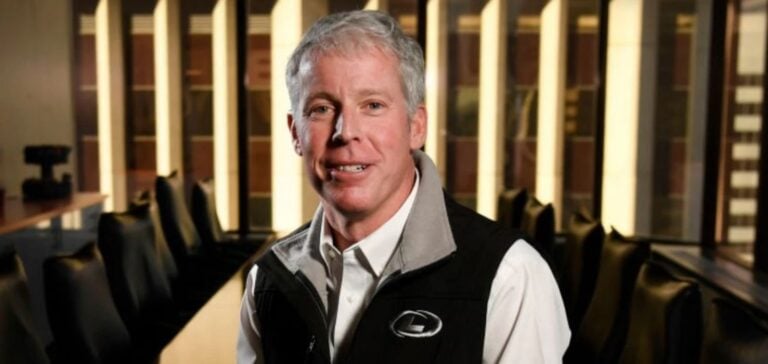President-elect Donald Trump continues his drive for energy dominance by appointing Chris Wright, CEO of Liberty Energy and a self-declared climate skeptic, as Secretary of Energy. This announcement, made during COP29 in Baku, is paired with the selection of Doug Burgum, Governor of North Dakota, to lead the National Energy Council (NEC). Together, they will form the backbone of Trump’s future energy policy.
Chris Wright is known for his sharp criticism of energy transition policies. He has labeled net-zero targets as “sinister” and condemned oil demand reduction forecasts as “malicious.” His nomination, praised by some Middle Eastern stakeholders, signals a significant pivot back to pro-hydrocarbon policies.
An alignment with oil producers’ interests
Wright’s appointment was described as “fantastic” by an anonymous Saudi official quoted by **S&P Global Commodity Insights**, highlighting the alignment between the new U.S. energy policy and Middle Eastern oil producers. While optimistic, these producers remain cautious about a potential rise in U.S. oil production, which could challenge OPEC+ efforts to stabilize prices.
As Secretary of Energy, Wright will oversee the management of the Strategic Petroleum Reserve and the issuance of liquefied natural gas (LNG) export authorizations. However, his role will not directly regulate U.S. oil and gas production.
A policy focused on energy expansion
Donald Trump, in introducing Wright, called him an ideal choice to lead the U.S. into a new “golden age of energy prosperity.” Wright is also a strong advocate for hydraulic fracturing, which he sees as essential to doubling global energy production and raising living standards worldwide.
Doug Burgum, appointed the previous day, will complement this vision as head of the NEC. This newly established body will coordinate U.S. energy policy directly under the White House’s oversight. Its main objectives include reducing administrative burdens, encouraging innovation, and increasing investment in hydrocarbons.
Challenges for OPEC and the global market
The possibility of increased U.S. oil production under the Trump administration has raised concerns among OPEC+ members. According to Kamil al-Harami, an independent analyst and former executive of Kuwait Petroleum Corp, “more American production could weaken OPEC and lower prices.” A supply glut is anticipated in 2025, driven by moderate Chinese demand growth and rising rival outputs.
Commodity Insights forecasts U.S. production to peak at 15.1 million barrels per day by 2030, accounting for 20% of global output. Meanwhile, Brent oil prices are expected to remain moderate, with an average of $78.70 per barrel projected for 2025.
A controversial vision on climate
Chris Wright’s views align with Middle Eastern critiques of decarbonization policies. During discussions at COP29, he dismissed the International Energy Agency’s (IEA) scenarios of drastically reducing hydrocarbon production by 2050. Wright considers these projections unrealistic and harmful, arguing that they increase energy costs and hinder global economic development.
For Donald Trump, these appointments exemplify his determination to place the U.S. at the forefront of global energy markets, focusing on increased domestic production and moving away from restrictive international climate policies.






















